Women Self Help Groups (SHGs) Play an Important Role in Rural Development in India
80% of Self Help Groups in India are Women Centric Groups. These Self Help Groups play an important role in rural development of India.
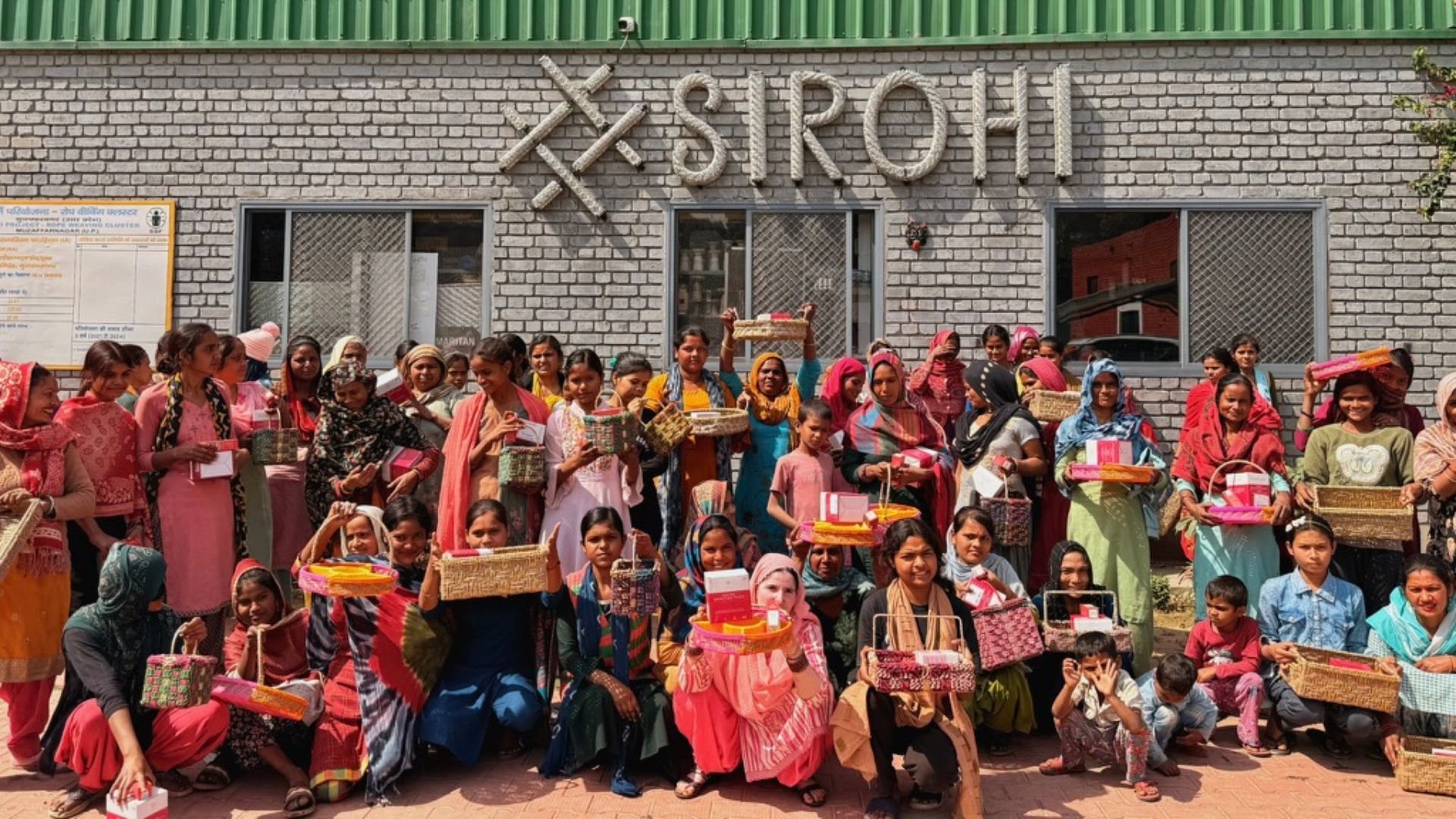
In the bustling landscape of modern India, there are women artisans working towards making a change. A change to their own lives and to the environment - one thread at a time.
Here we are sharing the story of Sirohi, a brand that is creating beautiful artisanal gifting solutions like baskets and boxes while focusing on creating a sustainable lifestyle, generating livelihoods and creating a positive social impact.
Culturally, Indians have inherited practices which are sustainable and environment friendly. People are awakening to this fact and turning back to their traditional roots. In India, what was once a trend of ‘Aping the West’ in the name of modernisation is now overshadowed by campaigns like ‘Make in India’ or ‘Go Local’. The ‘LiFE campaign’ i.e. Lifestyle for environment encourages individuals and communities to focus on sustainable lifestyle.
Young urban dwellers are becoming increasingly conscious of their environmental footprint. They are opting for products that help them live sustainably, from eco-friendly clothing to plastic-free packaging. Yet, many overlook the connection between sustainability and traditional crafts. Sirohi is making efforts to bridge this gap between what is traditional and what is modern by combining functionality, aesthetics and responsibility. It is enabling consumers to make lifestyle product choices that are supporting women artisans, help in generating livelihood as well as protecting the planet.
Tradition: Sirohi is preserving the age-old Charpai weaving techniques which have deep roots in the Muzzafarnagar city of Uttar Pradesh. Their artisans are using this weaving technique to innovate designs of products like trays, baskets, trousseau boxes, storage boxes, gift boxes etc with contemporary requirements, making then multi-purpose and functional.
Technology: They use modern waste management techniques to prepare raw materials for their hand woven products. These raw materials are prepared from textile waste or multi layered plastics.
Sustainability: They are helping to reduce environmental damage by reusing and upscaling textile waste as well as recycling multi layered plastics. They are committed to sustainability and purpose.
Sirohi is a business with purpose. It was born from a simple yet powerful idea - empower women artisans by skilling them and creating income opportunities while making a genuine social and environmental impact. It is a wonderful amalgamation of traditional craftsmanship and modern day problem solving.
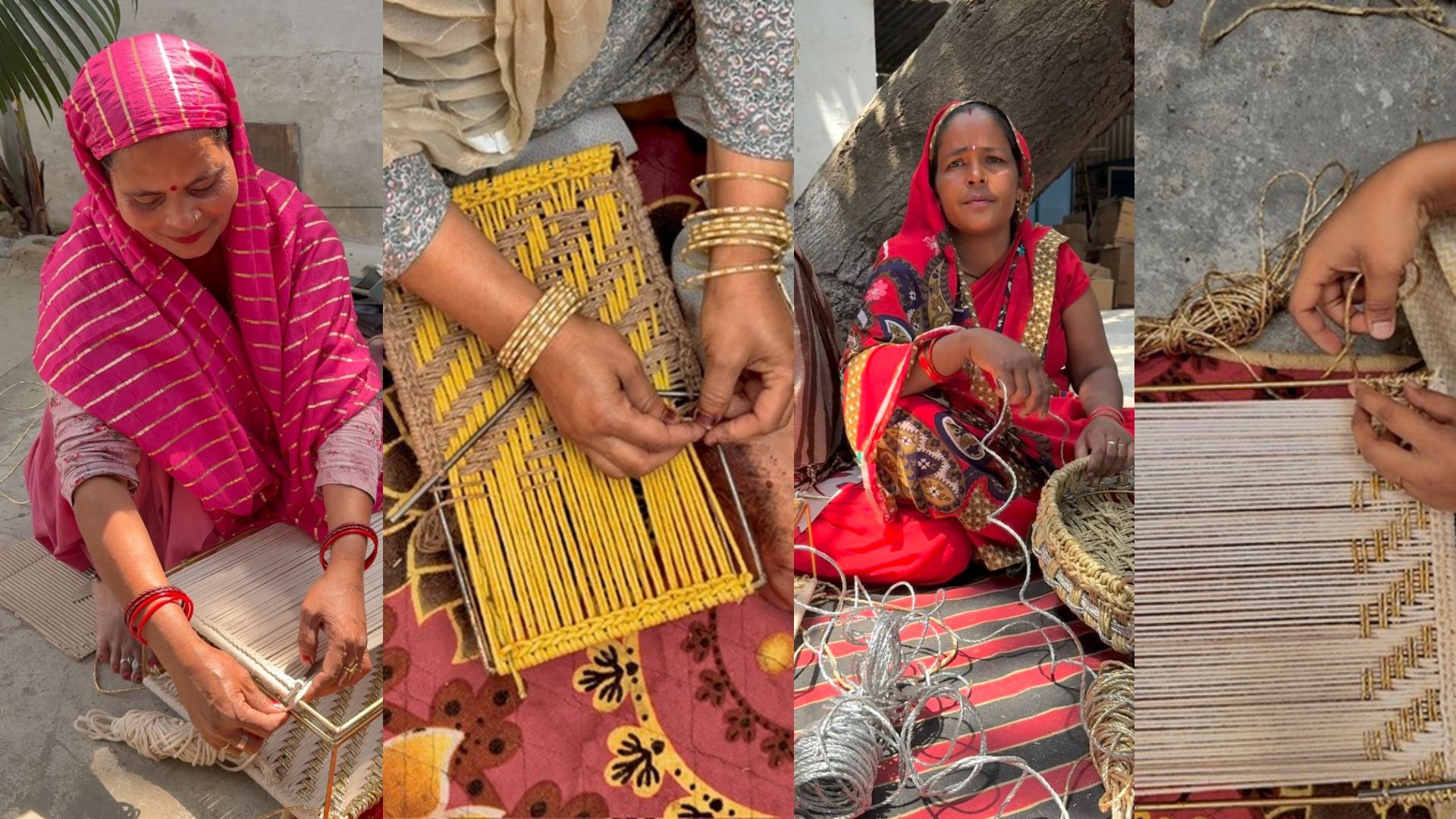
When one holds a Sirohi product, a meticulously woven basket or a sturdy storage box, they are holding more than just an item. They are holding the time, effort and the skill of a dedicated artisan.
In the world of mass production and instant gratification, the value of handmade goods are often misunderstood. Sirohi is not just creating products that are made with upcycled ropes but products which are environment friendly, re-usable and multi-functional. They are for keepsakes and not just use and throw.
Sirohi started with a small initiative to train women in craft-based skills and quickly evolved into a platform that celebrates traditional weaving techniques through contemporary and functional products. Every product they make is a story of skill, dignity and care for the planet. The mission is to empower women artisans with skills, income and confidence to become financially independent, while preserving and innovating upon traditional Indian crafts. Sirohi believes in a slow, ethical production that respects both the maker and the environment. This proves that luxury and sustainability can go hand in hand.
5,500+ Lives Impacted in FY24 - 25
50,000 Handcrafted Items
₹1.2Cr + Income generated for artisans
1,20,000+ kgs Plastic & Textile Waste Upcycled in FY24-25
Additional income generated for local SMEs for 24-25 was 90 lacs.
In rural India, women face challenges that limit their opportunities. There is limited access to education, financial independence and lack of formal employment. This makes it difficult for them to break cycles of poverty. There are many talented women artisans in India that rely on traditional skills like weaving. However, without structured platforms, fair wages and almost zero to limited market access, their craft often goes undervalued. This is where Sirohi is making transformational changes. They are turning these challenges into opportunities by creating dignified livelihood for women through weaving handmade, sustainable products.
Sirohi puts artisans' welfare at the centre of every decision. For instance, they ensure that women earn significantly higher wages compared to traditional craft or labour alternatives in their region. It provides financial stability and makes artisan’s work dignified and an aspirational career choice.
They also and rightly so, invest heavily in skill development – from training in contemporary design techniques to quality control. This enables artisans to create products that meet global standards without compromising on authenticity of their art.
While onboarding new artisans, Sirohi ensures that they feel empowered, hold value and confidence in their skills and stay connected to the larger purpose from day one. New artisans are generally discovered through their partner organization, the Skilled Samaritan Foundation that leverages skilling, leadership and entrepreneurship training for basic level artisan to upgrade them to skilled artisan. Sirohi also conducts various drives in the communities like menstrual pad distribution and eye test drives which not only uplifts them but also gives an opportunity to connect.
Sirohi’s process starts with understanding the artisan's existing skills and traditional techniques. They provide targeted training in design innovation and quality standards, which helps their work be in alignment with modern aesthetic while staying true to its traditional roots. These trainings also introduces artisans to new materials, with a strong focus on up-cycled and sustainable inputs.
After completing their training, artisans are integrated into ongoing projects where they receive consistent orders, fair pay, continuous feedback for improvement along with appreciation for good work. This approach goes beyond simply creating products, it builds confidence, financial independence, and a sense of belonging for the artisans within the Sirohi network. Many women, who were not allowed to step out of their houses four years back, earn more than their counterparts and now have the strength to take care of the entire family financially.
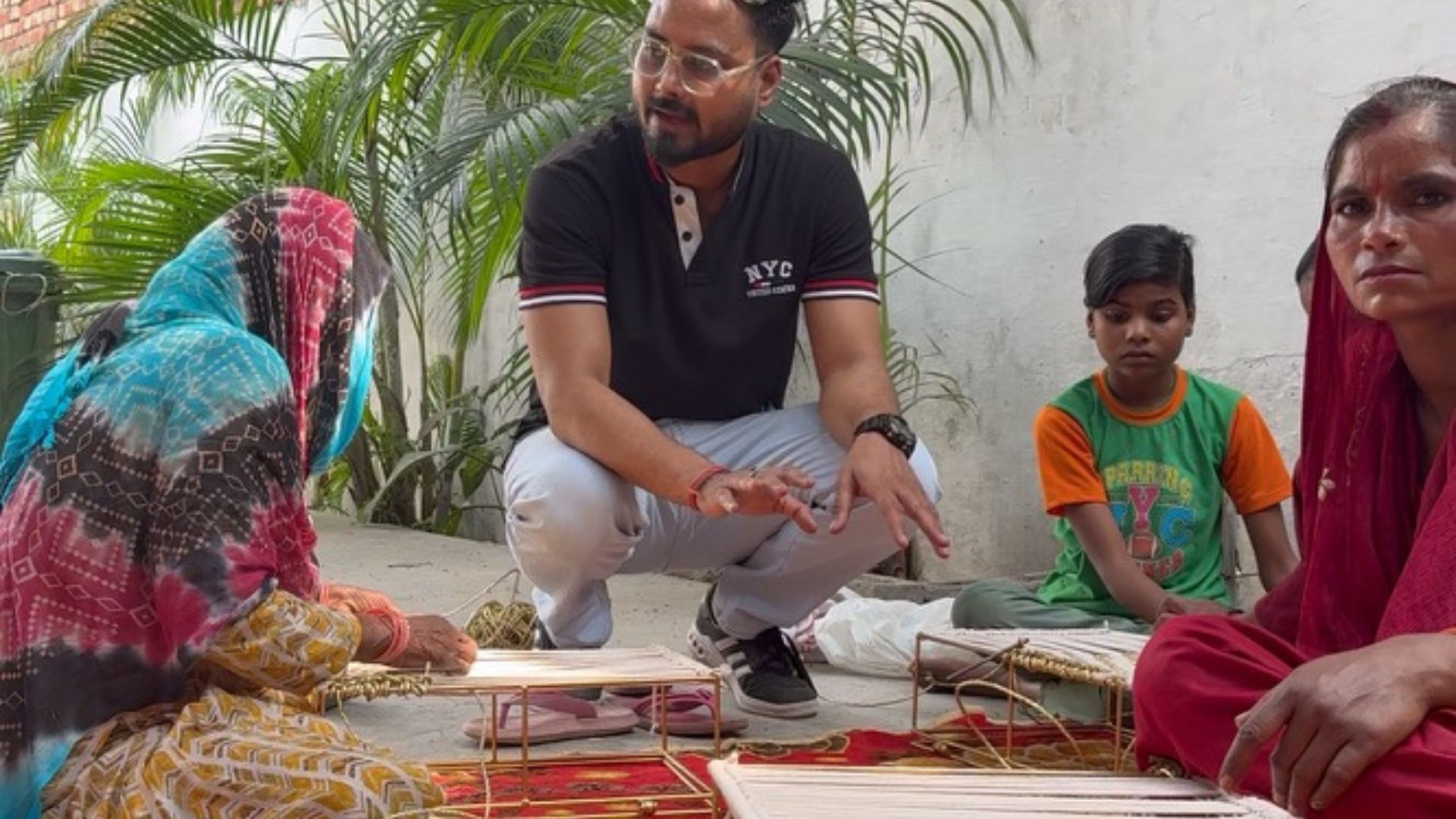
At the heart of what Sirohi does, lies materials which are trash: Textile and Multi Layer Plastic Waste.
Textile waste is the discarded fabric and clothing generated at various stages of a product life cycle. In India, textile waste is the third largest contributor to municipal solid waste with an alarming 7.8+ million tonnes accumulated annually. Owing to fast fashion, there has been a huge increase in textile waste which can easily take up to 200 years to decompose. While there are vast quantities of discarded textiles, recycling remains very low.
The textile waste can be categorized into two, pre-consumer and post-consumer. Pre-consumer textile waste includes scraps and trimmings from the manufacturing process. Post-consumer textile waste is discarded clothing after usage. Normally, post-consumer waste is difficult to collect and segregate and more than often ends up in landfills. Most recycling facilities prefer uniform pre-consumer waste which is easier to collect, segregate and process.
Textile industry isn’t the only one leaving behind a trail of waste. Multi-layered plastic (MLP) waste, found in everything from snack packets to shampoo sachets pose a greater challenge to the environment. They have complex composition (layers of plastic, paper, aluminium etc) and are often non-recyclable through traditional methods. They choke our landfills and oceans. Sirohi works with local waste collectors to source MLP waste which is then transformed into yarn, popularly known as ‘plarn’
The yarn from textile waste and plarn from MLPs are then used to weave or crochet various products like pouches, trays, bags, baskets, boxes and a lot more. The process is a labor of love, hours of meticulous craftsmanship and a purpose of becoming financially independent while protecting the environment, all rolled in one.
The Indian crafts industry is characterized by its familial enterprises which are small scale and the skills are generally passed down from one generation to another. They face challenges from rapid technological advancement, globalization and shifting demographics.
The artisanal goods industry faces challenges from mass-produced items. Mass produced items are typically cheaper and more widely available. They create a difficult market environment with price-sensitive customers. Artisanal goods have cost of material, cost of time invested, cost of labour and skill as well as a profit markup. This is also a big challenge for Sirohi as many people find it difficult to understand the cost of ethical production as well as the fact that handmade products are unique and cannot match the speed or cost of fast-mass produced products.
When one works with rural women artisans and focuses on handcraft, growth is slower by nature — it takes time to train artisans, ensure quality of products, and maintain fair pay. In a world where speed often trumps everything else, holding on to those values while trying to compete in the market of sustainable products, which is often squeezed and not understood, is not easy. Another big challenge that arises out of the price sensitive market and slow nature of production is maintaining the regular wages for all the artisans.
As a socially focused for profit enterprise, Sirohi also has to innovate on multiple fronts – from sourcing upcycled materials to creating contemporary design with traditional craft techniques. Building efficient supply chains in rural settings is not an easy task. There are no plug and play solutions, so every step involves experimentation, patience and adaptability.
While there are challenges to be navigated, they have also helped Sirohi shape into what it is today – a brand that is resilient, deep rooted in its mission and committed to proving that businesses can be a force for good.
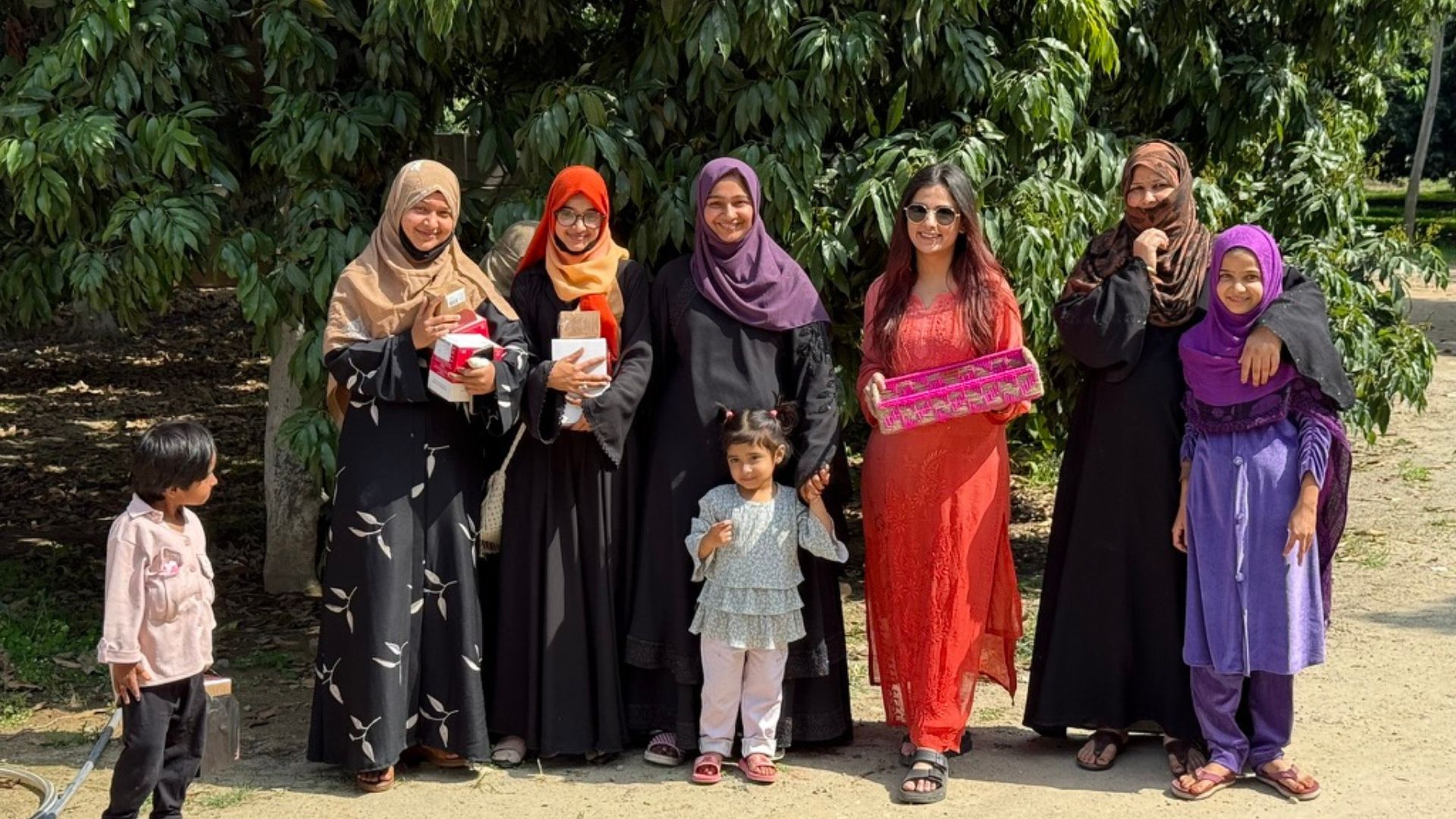
Sirohi’s commitment to circularity in sustainability represents a fundamental shift in business model that effectively reduces environmental footprint and creates new value from waste. It engages in advocacy and dialogue for sustainability and empowering artisans. This positions Sirohi as a systemic change maker, not just a responsible manufacturer. It also stands as a testament to an initiative to protect both people and the planet.
Sirohi wishes to push the boundaries of material innovation — exploring new up-cycled, plant-based, and regenerative materials that not only reduce waste but also open new design possibilities. They are committed to deepening their impact by moving closer to a fully circular production model, minimising carbon footprint, and ensuring that sustainability is embedded in every stage — from sourcing to shipping.
Sirohi’s aspirations are to be a globally recognised name for conscious luxury — where every product tells a story of craft, community, and care for the planet. This means expanding artisan networks to include more women from rural and underserved communities across India, giving them the skills, income, and confidence to become financially independent.
The ultimately goal would be to prove that a business can be a true force for good — inspiring consumers to choose better, and showing the world that traditional craft can thrive in the modern marketplace without losing its soul.
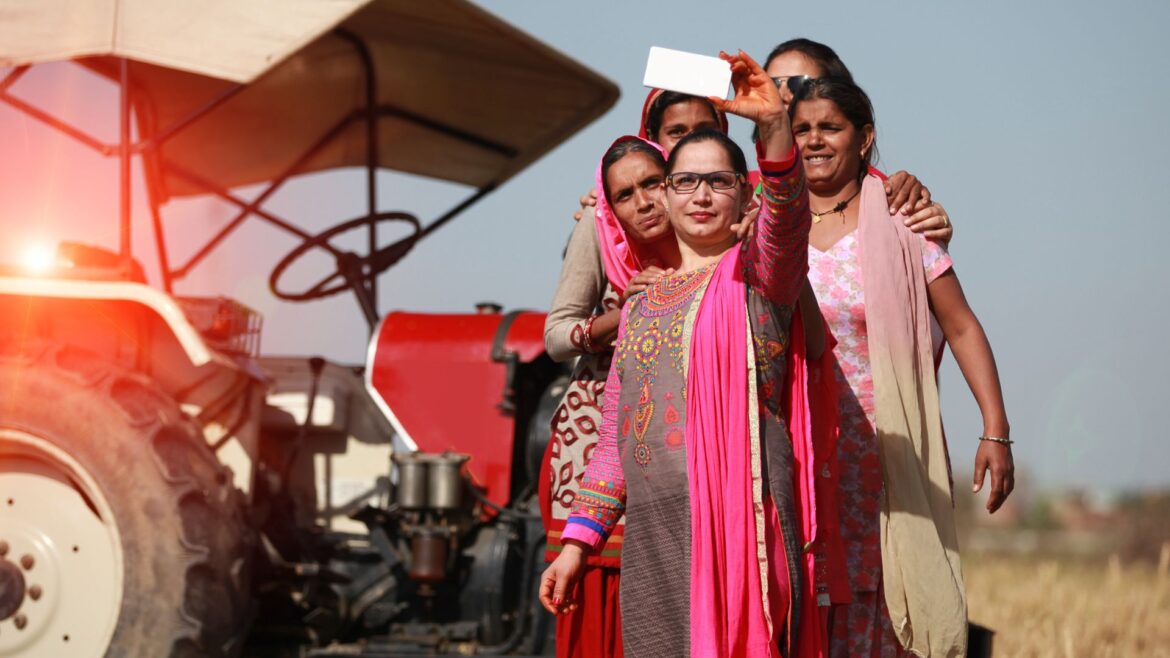
80% of Self Help Groups in India are Women Centric Groups. These Self Help Groups play an important role in rural development of India.
India is investing billions to become a global semiconductor powerhouse. But are government incentives building a full chip-making ecosystem or just temporary assembly hubs? Let’s explore the reality behind India’s chip dreams.

Air pollution isn’t just about smog and coughs — it’s quietly choking our hearts too. Here’s a raw, human take on the hidden connection between dirty air and heart disease in India.

Development activities in Ladakh must be done keeping in mind the ecological threat and impact in the region

